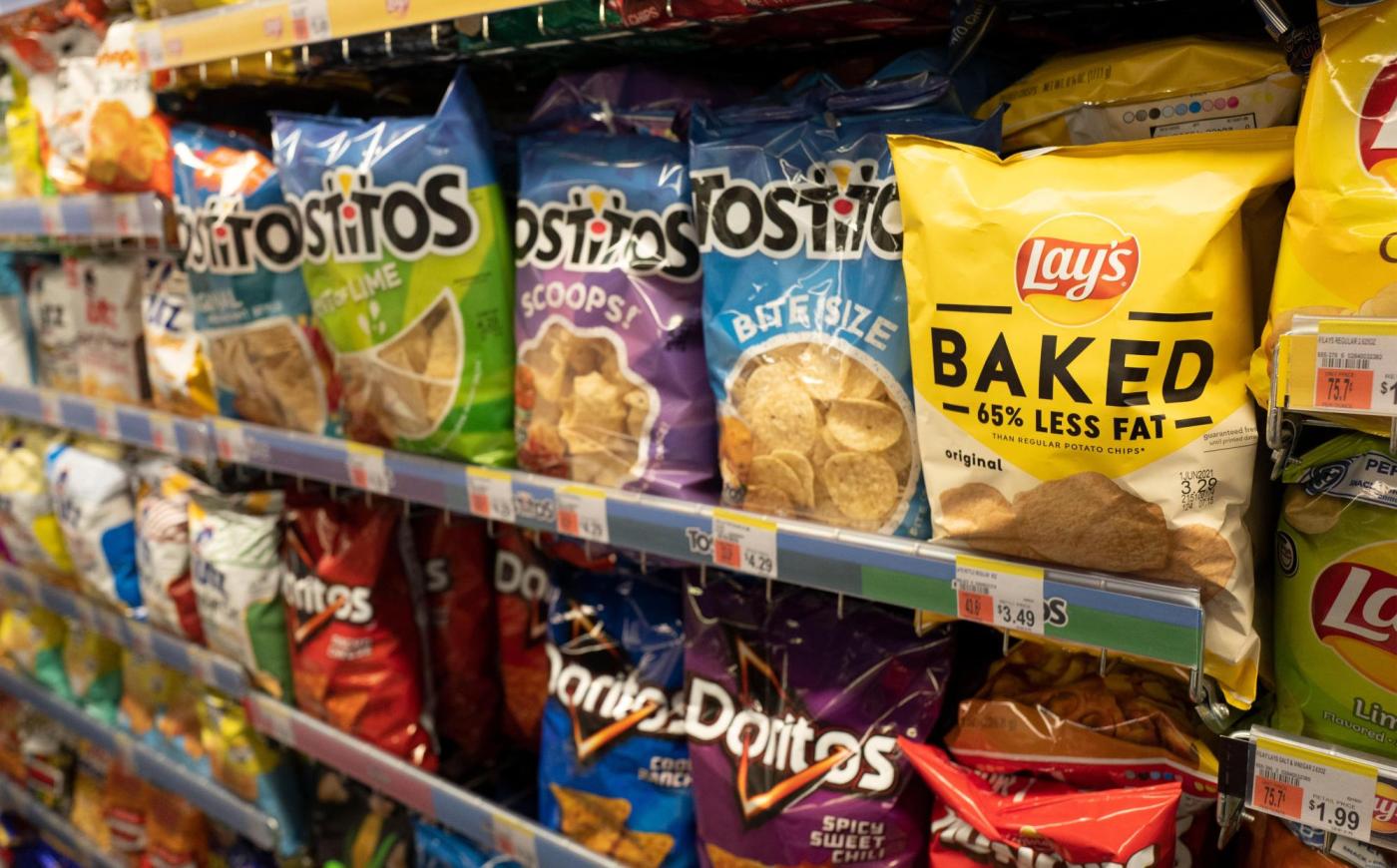By JONEL ALECCIA, Associated Press
Molecules in blood and urine may reveal how much energy a person consumes from ultraprocessed foods, a key step to understanding the impact of the products that make up nearly 60% of the American diet, a new study finds.
It’s the first time that scientists have identified biological markers that can indicate higher or lower intake of the foods, which are linked to a host of health problems, said Erikka Loftfield, a National Cancer Institute researcher who led the study published Tuesday in the journal PLOS Medicine.
“It can potentially give us some clues as to what the underlying biology might be between an ultraprocessed food association and a health outcome,” Loftfield said.
Ultraprocessed foods – sugary cereals, sodas, chips, frozen pizzas and more – are products created through industrial processes with ingredients such as additives, colors and preservatives not found in home kitchens. They’re ubiquitous in the U.S. and elsewhere, but studying their health impacts is hard because it’s difficult to accurately track what people eat.
Related Articles
Only 25% of sunscreens on store shelves are safe and effective, new report says
‘Anti-natalism.’: Authorities analyzing nihilistic writings of suspect in California fertility clinic bombing
Live organ donation rising, but need is growing: ‘It’s the greatest feeling to know I helped someone live’
‘Dilbert’ creator Scott Adams: I’m dying from same cancer as Joe Biden
Diaper bank expands in Alameda County for those in need
Typical nutrition studies rely on recall: asking people what they ate during a certain period. But such reports are notoriously unreliable because people don’t remember everything they ate, or they record it inaccurately.
“There’s a need for both a more objective measure and potentially also a more accurate measure,” Loftfield explained.
To create the new scores, Loftfield and her colleagues examined data from an existing study of more than 1,000 older U.S. adults who were AARP members. More than 700 of them had provided blood and urine samples, as well as detailed dietary recall reports, collected over a year.
The scientists found that hundreds of metabolites – products of digestion and other processes – corresponded to the percentage of energy a person consumes from ultraprocessed foods. From those, they devised a score of 28 blood markers and up to 33 urine markers that reliably predicted ultraprocessed food intake in people consuming typical diets.
“We found this signature that was sort of predictive of this dietary pattern that’s high in ultraprocessed food and not just a specific food item here and there,” she said.
A few of the markers, notably two amino acids and a carbohydrate, showed up at least 60 times out of 100 testing iterations. One marker showed a potential link between a diet high in ultraprocessed foods and type 2 diabetes, the study found.
To confirm the findings, Loftfield measured the scoring tool with participants in a carefully controlled 2019 National Institutes of Health study of ultraprocessed foods.
In that study, 20 adults went to live for a month at an NIH center. They received diets of ultraprocessed and unprocessed foods matched for calories, sugar, fat, fiber and macronutrients for two weeks each and were told to eat as much as they liked.
Loftfield’s team found that they could use the metabolite scores to tell when the individual participants were eating a lot of ultraprocessed foods and when they weren’t eating those foods.
The results suggested the markers were “valid at the individual level,” Loftfield said.
It’s still early research, but identifying blood and urine markers to predict ultraprocessed foods consumption is “a major scientific advance,” said Dr. Dariush Mozaffarian, director of the Food Is Medicine Institute at Tufts University, who was not involved in the study.
“With more research, these metabolic signatures can begin to untangle the biologic pathways and harms of UPF and also differences in health effects of specific UPF food groups, processing methods and additives,” he said.
Loftfield said she hopes to apply the tool to existing studies where blood and urine samples are available to track, for instance, the effect of consuming ultraprocessed foods on cancer risk.
At a time when support for government research is being cut, funding remains uncertain.
“There’s a lot of interest across the board — scientifically, public interest, political interest — in the question of: Does ultraprocessed food impact health and, if so, how?” she said. “How can we fund the studies that need to be done to answer these questions in a timely way?”
The Associated Press Health and Science Department receives support from the Howard Hughes Medical Institute’s Science and Educational Media Group and the Robert Wood Johnson Foundation. The AP is solely responsible for all content.





